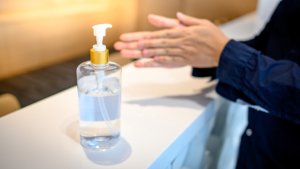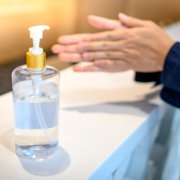 In late January reports began to emerge of the presence of a potentially deadly virus in the city of Wuhan, China. Since then the continued spread of Coronavirus (now clinically known as COVID 19) has shown no signs of abating, with more than 167,511 people across the world testing positive for the virus and the death toll rising to 6,606 (1000 16th March 2020).
In late January reports began to emerge of the presence of a potentially deadly virus in the city of Wuhan, China. Since then the continued spread of Coronavirus (now clinically known as COVID 19) has shown no signs of abating, with more than 167,511 people across the world testing positive for the virus and the death toll rising to 6,606 (1000 16th March 2020).
To date (0900 on 16th March 2020) there have been just 1543 confirmed cases in the UK, so while it’s important not to panic, it’s vital to be vigilant to stop any potential spread of the virus in its tracks.
What is Coronavirus?
The World Health Organisation define Coronaviruses (CoV) as a family of viruses that can cause illness, ranging from the common cold to more severe conditions, such as Severe Acute Respiratory Syndrome (SARS). The COVID 19 strain detected in Wuhan is a newly found strain of this family of viruses, with the most commonly reported symptoms including a fever, cough and a shortness of breath.
Based on similar viruses, it’s predicted that these symptoms will appear within two to 14 days of exposure, which is why you may have seen on television and newspaper reports that individuals thought to have come into contact with the virus have been quarantined in the Wirral and Milton Keynes for a period of two weeks, in order to attempt to potentially prevent it spreading further.
What do you do if you’ve got guests visiting from Asia?
The UK Chief Medical Officers are advising anyone who has travelled to the UK from mainland China, Thailand, Japan, Republic of Korea, Hong Kong, Taiwan, Singapore, Malaysia or Macau in the last 14 days and is experiencing cough, fever or shortness of breath to stay indoors and call NHS 111, even if symptoms are mild.
If you have guests that are visiting from these areas, it’s important that they’re aware of this procedure and that they know the NHS 111 number to call during their stay.
Other measures you can take
No matter if a virus is airborne or spread by human touch, there are a number of simple and easy steps you in make in your holiday home:
- Introduce a hand sanitiser
You’ll notice that as soon as there’s any form of viral outbreak, whether it’s in an office, hospital or anywhere people congregate, the first measure put in place is the introduction of hand sanitiser — there’s a very good reason for this! Viruses can live on surfaces for long periods of time (some for as long as a week!), meaning that if someone infected touches an item such as a coffee cup or glass, the next person to touch it can catch the virus, even if it’s sometime later.
- Make sure you have sanitiser in the hallway / entrance to your property
The entrance to your holiday home is most commonly the place that people will be touching things (think door handles) with unwashed hands. Stopping bugs and germs at the front door is the best way to make sure they don’t travel throughout your cottage.
- Damp clean all radiators and air vents
The warm and humid air found inside radiator vents can provide viruses with the perfect place to survive and thrive. When you clean these, make sure you use a damp cloth or cleaning item rather than a duster, which can very quickly send the virus airborne within your holiday home.
- Make sure your changeover is thorough
The majority of holiday homes have a thorough changeover regime, however this time of year when less guests are booked into your holiday home provides an opportunity to have a review and update that checklist. Any surface that goes uncleaned is an opportunity for colds and other viruses to lurk!
For more information and daily updates on Coronavirus please visit:
- https://www.gov.uk/guidance/wuhan-novel-coronavirus-information-for-the-public
- https://www.nhs.uk/conditions/coronavirus-covid-19/common-questions/
Guidance for environmental cleaning in non-healthcare facilities exposed to Coronavirus visit:
- https://www.gov.uk/government/publications/covid-19-decontamination-in-non-healthcare-settings/covid-19-decontamination-in-non-healthcare-settings
- https://www.ecdc.europa.eu/sites/default/files/documents/novel-coronavirus-guidance-environmental-cleaning-non-healthcare-facilities.pdf
- https://www.nhs.uk/live-well/healthy-body/how-to-prevent-germs-from-spreading/
What about loss of income and liability insurance – am I covered?
We have compiled a list of FAQ’s regarding Boshers holiday home insurance cover and coronavirus which you can read here:
If you would like to discuss specialist holiday home insurance for your property, please give our experienced team a call on 01237 429444.



